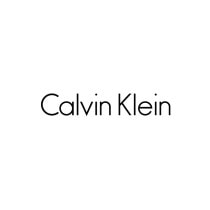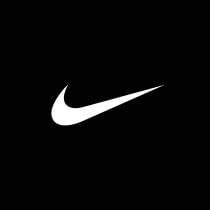HYPETRAK 專訪說唱歌手 Alex Wiley 及新專輯《Village Party》試聽
儘管你對 Alex Wiley 這個名字不大熟悉,但該為僅剛剛踏入 21 歲的芝加哥說唱歌手經已繼上年的《Club Wiley》混音專輯后,於最近時間發表了最新的個人專輯《Village
儘管你對 Alex Wiley 這個名字不大熟悉,但該為僅剛剛踏入 21 歲的芝加哥說唱歌手經已繼上年的《Club Wiley》混音專輯后,於最近時間發表了最新的個人專輯《Village Party》。從該番新專輯的創作看來,年紀輕輕的 Wiley 再一次證明他對 Hip-Hop 的確擁有獨到的視野以及風格。而我們的 HYPETRAK 也趁此機會對 Wiley 進行了一次對話,向大家分享該番專輯的創作過程,預期甚至提及到說唱歌手 Chance the Rapper 等話題,留意以下訪談內容的同時,更可於最下方的播放器對專輯《Village Party》進行試聽。
Talk to us about your growth as an artist since Club Wiley.
I think I refined my sound a little more, but the main growth happened content wise. I’ve just gotten better with writing and have developed a better command over the language now. I feel like I can say what I’m trying to say a lot easier now. It’s not really like I’ve changed as a person since then, though I’ve gotten to see and to more shit, but I’m really able to say what I want the way that I want now. It used to be that I came up with my flows first, and would fill in the words into the flows. Sonically it was working for me, but the lyrics became kind of an afterthought. I still come of my flows first a lot of times, but I’ve gotten a lot better with saying what I needs to say in those rhyme schemes without comprising anything.
Would you say that came from you being able to do it everyday for a couple years now?
Yeah, it came from rapping a lot. Also, really figuring out what I wanted to say, how I wanted to come across and deciding what my whole point of making music even was. It all kind of clicked for me all at once, and I made like seven songs in three days and they’re all on the project.
Yeah, it seems like you’ve found your sound in Village Party. Even though songs like “Ova,” “Vibrations” and Own Man,” all have varying vibes, there’s definitely a unified, unique sonic approach.
Yeah, and I still have a hard time describing it. It’s more of a feeling and confidence with how I feel about things. I’ll hear something and if I don’t like it, and if I don’t like it I won’t do it. I trust myself a lot more. When I was making Club Wiley it was my first project and there was a lot of iffyness. There was so much thinking about how certain people would react. Not even necessarily fans, more so blogs and labels. The fact the people received the project well gave me that confidence to do what I really want to do. I also don’t care about as many things as I did when I was making Club Wiley. It was almost like I was trying to accomplish too much on certain points of Club Wiley, trying to appeal to too many people. I think I did a good job with it, but there’s records like “K Swiss” which is right after “Nothing To Me,” and those two are polar opposites. I’m glad I did it that way, but I’d never do it like that again.
Now I’m trying to treat each project that I make as its own singular thing, and have them be way more cohesive. I want the next project to feel nothing like Village Party, from start to finish I want it to be a whole different thing.Is the next project something you have on your mind already?
Faintly, like I know how I’m going to approach it, but I have no idea how it’s going to sound yet.
Can you tell us about the importance of the song “Own Man?”
That was one of the earliest songs I made off of Village Party. I didn’t even write it actually, Zach (Odd Couple) sent me the beat and I made up the verse in my head after listening to the beat a lot. That was one of the songs that helped me decide on how I was going to approach the project, more introspective, more personal, but still with my flows and delivery. I was challenging myself to come up with something a little more meaningful and open up a bit, while still keeping my flow and the structure very strong technically. It was a challenge.
Why was Mick Jenkins the right featured artist for that song?
For the longest time it was just my verse and the hook. We were trying to figure how to finish it and I didn’t have much more to say. I don’t really like second verses, they don’t come naturally to me. If that wasn’t a thing, where people just expect you to have a second verse, I wouldn’t have them. Sometimes I don’t, but with that record it just felt short. I had recently seen “Martyrs” and was a big fan of Mick, so I knew he’d come in and kill it.
Odd Couple and Hippie Sabotage have been some of your go-to producers, how did you get started with them?
I found out about Hippie Sabotage through my friend Monster Mike. He found their beats on YouTube back when we were making all those songs together, back in that “Dollar Please” / “Mo Purp” era. They wouldn’t hit us back at first, so we just rapped over one of their beats and set it to them. They’ve been fucking with us ever since, and now they are like blowing up. But yeah, they have three records on and Odd Couple has three as well. I’m trying to think how I very first came across Odd Couple. I met Zach at the studio one time, then months later I ended up getting some of his beats sent to me. The thing with him is that he makes so many different kinds of beats. He’s like the Allen Iverson of beats, he’s putting 30 shots a game and you just pick the ones that are exceedingly hot from that batch. The first song I made with him was “Thug Angel” which was actually the first single off of Club Wiley.
What is it like being a part of this amazing time in Chicago hip hop, and getting to accomplish some pretty great things alongside your friends and peers?
It’s crazy. Like I’ve known Chance since kindergarten, we went to all of grammar school together and he’s now getting to be one of the biggest rappers in the world. Vic and I went to high school together, and he’s making international hits. It’s really cool to be a part of, things don’t usually line up like this. Groups of friends from way back don’t really get to all do music individually at such a high level like this.
Way back, on some of your earliest stuff, you cited Crucial Conflict as one of your major influences. Your music has changed a whole lot since then, who are some of the influences you’ve acquired along that way that have help guide that?
For Village Party my biggest influences were Little Dragon for starters, this kid Allan Kingdom from Minnesota, SBTRKT and Sampa, Cudi always, Kanye always. Then also just me experimenting, there’s a lot more of me on this project compared to the last.
As Club Wiley did, Village Party released via Closed Sessions, tell us about a little bit about them and what they’ve been able to provide for you as an artist.
It’s been the coolest artist development ever. I definitely wouldn’t be making the same type of music elsewhere. It’s taken the limitations of me musically, I have the capabilities to really experiment. Just getting to be in such a great studio with an experienced engineer has been great. I got lucky really, we were both just getting started and came together and it’s become a great situation. We’re hitting our groove, I’m excited to see what we’re capable of. When I think about the growth between project one and two, and start to think about the growth that will come between projects two and three I just end up smiling deviously.
Growth has definitely been the common theme of our conversation, with that in mind where do you see your music heading in the future?
I do everything with hella perspective, I’m trying to make shit that helps me get to where I want to be when I’m 30. I have very set career goals, and that’s part of why my music got a little more serious, a little more thoughtful and a little less “fuck everything.” I’m going to be an adult one day, I’m an adult now but you know, and I don’t wan’t to listen back on my original albums and it be on some whiney little kid goofy shit. I want to make stuff I’m proud of today, I’ll be proud of next year, I’ll be proud of when I’m 30 and I’ll be proud of when I die. Everything I’m doing now is with the perspective of who I’m growing to be. I’m not a dumb person, and I don’t some of my music comes off that way and honestly I feel like I’m doing myself a disservice. A record like “Earfucked” I wouldn’t ever make today, “Mo Purp” I wouldn’t ever make today. I’m glad I made them, they did great things for my career, but I’m not that anymore. Those were songs I made not being able to actually articulate what I wanted to say.
Alright, Village Party is here. What do you want that first listen to feel like for fans?
I want to be like the first time you heard College Dropout, or the first time you heard a Kid Cudi album, or anything that you heard the first time and knew that it was something special for you. I don’t know, I just want to feel really new man. There’s so much music out, there’s always a new person that you need to go check out, and that makes it so hard to get excited about new music. I want this to feel genuinely fresh and like it’s coming from a new perspective. That’s what drives me, that’s the reason I keep making songs. Whatever I’m doing, I want to provide a new experience with each song, each project. That’s what I’m about as an artist, I really feel the need to contribute something to music.


























